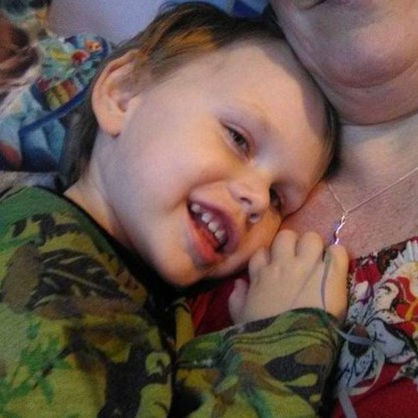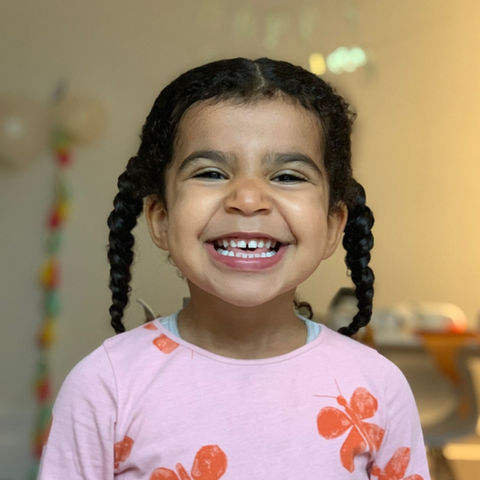What is DIPG?
There are over 120 different known types of brain cancer. DIPG or 'Diffuse Intrinsic Pontine Glioma' is the most fatal of all these brain cancer types.
DIPG grows in the PONS area of the brainstem making surgery impossible. Currently there are no approved or validated 'data driven' effective treatments or a cure available.
The average survival time from diagnosis for a child remains staggeringly low at just 9-12 months.
Fund Research
At the moment there is no cure and no proven treatments for DIPG. Abbie's Army are committed to raising funds and with support and advice of our Scientific Advisories, commissioning or contributing to high quality and innovative medical research to find a cure for DIPG. With your help, you can give hope to future DIPG families.
You can read more about how we fund research here

17th May is DIPG Awareness Day. Click here to buy a gold ribbon pin from our shop and support the fight for a cure.

Abbie's Story

Our world was shattered on 13th April 2011 when our 6-year-old daughter Abbie was diagnosed with DIPG, a rare, incurable brain tumour. The only treatment was palliative radiation. After her radiation at The Royal Marsden, we took one last family holiday to Dorset before Abbie's painful decline.
My biggest fear was that she would be afraid...as afraid as we, her parents were of losing her. Abbie only ever believed that she would be well again and all she would speak of the whole time would be getting back to school with her friends where she belonged.
We had exactly 5 months to the day from Abbie's original diagnosis, we managed to get her home from our local hospital for one last night of cuddles in familiar surroundings with her family around her and sadly she slipped away in our arms the following morning on September 13th 2011.
In November 2012 'Abbie's Army' the charity formed in her memory and gained their own charity registration with the Charity Commission.
Diffuse Intrinsic Pontine Glioma affects around 40 children a year in the UK...

Has your child just received a DIPG diagnosis?
To be delivered the death sentence that is DIPG for your child is surely the cruellest and most harrowing experience that any parent should have to face. At times the emotional strain can be completely overwhelming. We've been there, fully understand and want to help.
We can help connect you with the right experts quickly, providing the most up-to-date research and evidence-based guidance on treatment options. We can also connect you with other families who understand what you're going through. Sharing symptoms, coping mechanisms, and experiences can be a powerful source of strength.


Check Out Our Latest News
Catch up on the most recent updates, research breakthroughs, and exciting events from Abbie’s Army. Our news section is your go-to source for the latest developments in the fight against DIPG and ways you can get involved.


































